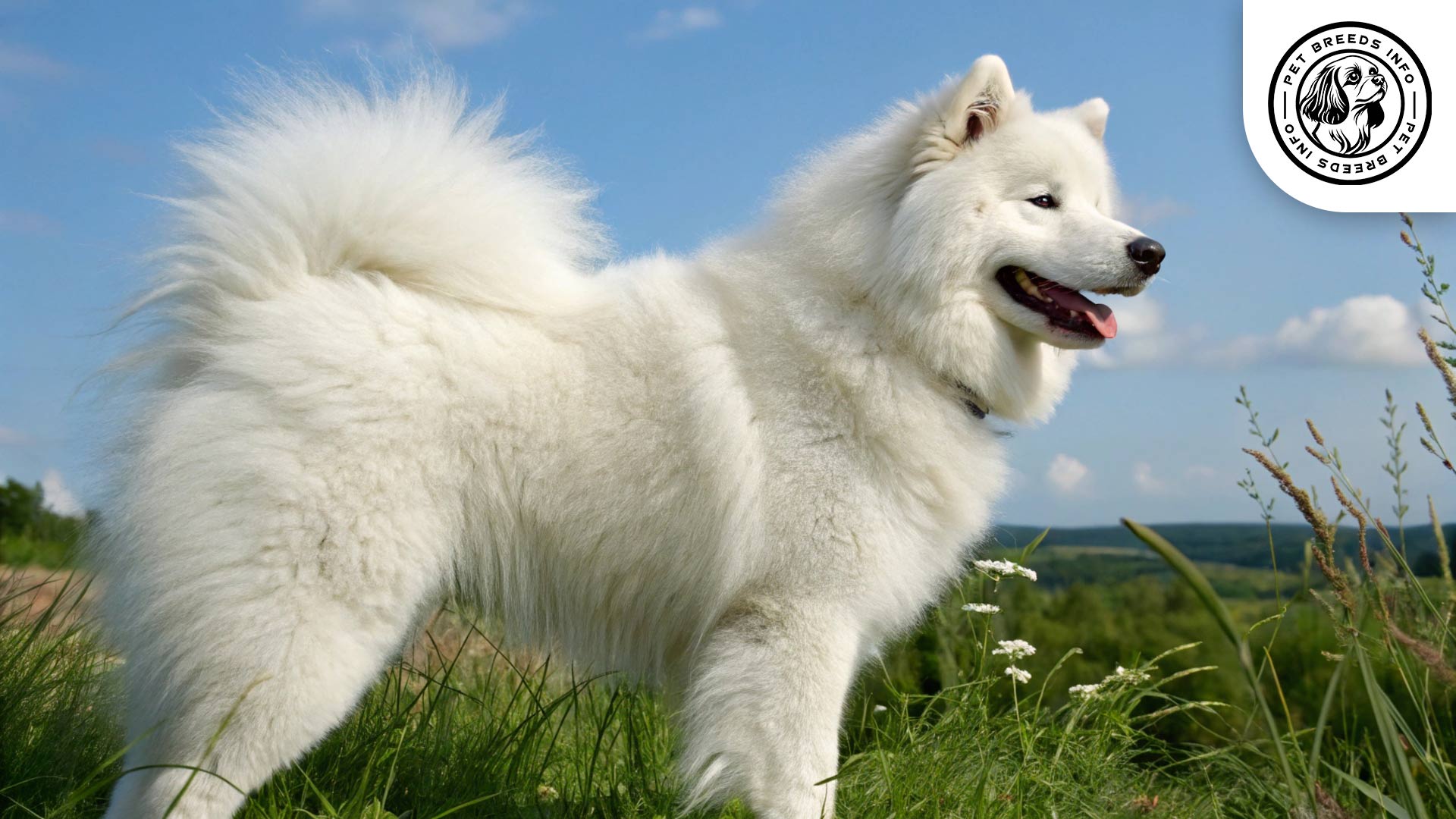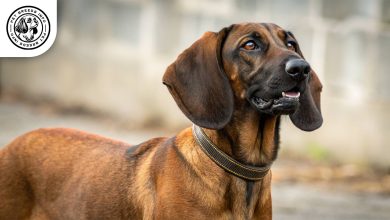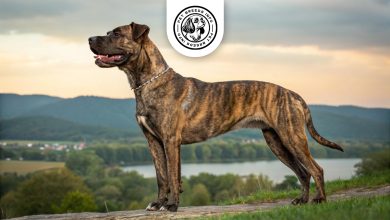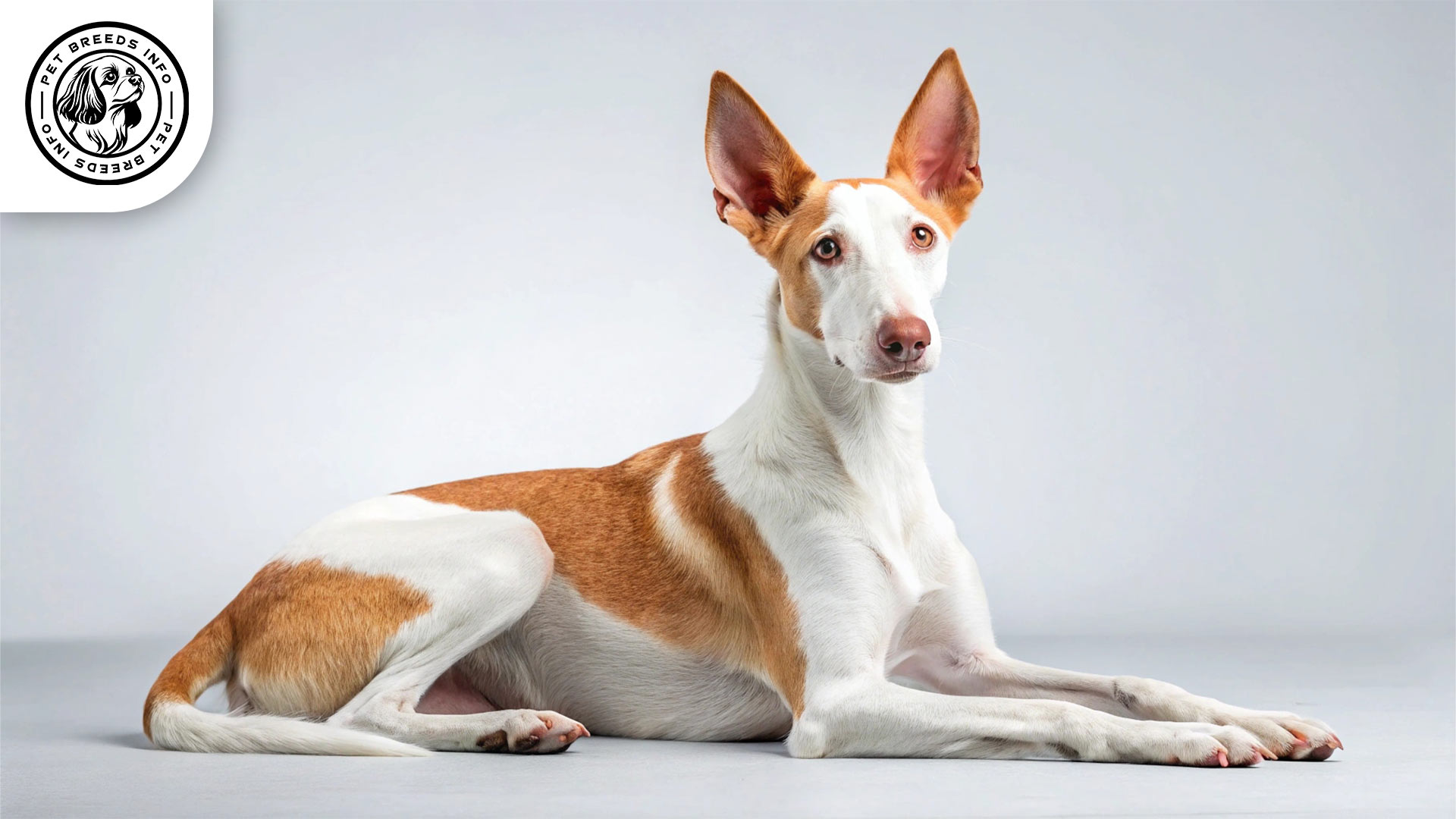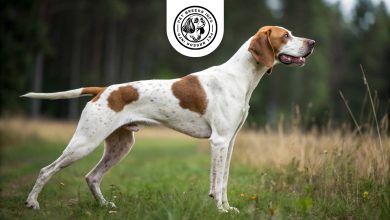Samoyed Dog Breed: Size, Health, Price & Personality
General Introduction of the Breed
The Samoyed, also known as “Sammy” or “Smiling Sammy,” originates from Siberia, Russia. The breed was developed by the Samoyede people, a nomadic tribe that used these dogs for herding reindeer, pulling sleds, and providing companionship.
Table of Contents
| Color | Predominantly white, may have slight cream or biscuit shading |
| Weight | Males: 45-65 pounds (20-30 kg), Females: 35-50 pounds (16-23 kg) |
| Lifespan | 12-14 years |
| Diet | High-protein diet with balanced fats and carbohydrates, portioned into two meals per day |
| Care | Daily exercise, frequent brushing (2-3 times per week, more during shedding), bathing when necessary, regular nail trimming, ear cleaning, teeth brushing |
| Health | Prone to hip dysplasia, progressive retinal atrophy (PRA), and Samoyed hereditary glomerulopathy. Routine vaccinations, parasite prevention, and annual health screenings are necessary |
| Nature | Intelligent, eager to learn, independent streak, high energy, friendly, affectionate, good with children and other pets, may chase smaller animals |
| Price | $1,000 to $3,500 from reputable breeders, less from shelters or rescues |
Physical Characteristics
Samoyeds are medium to large-sized dogs. Males typically stand between 21 to 23.5 inches (53-60 cm) and weigh 45-65 pounds (20-30 kg), while females range from 19 to 21 inches (48-53 cm) and weigh 35-50 pounds (16-23 kg).
The breed has a thick, double-layer coat that is predominantly white, though some may have slight cream or biscuit shading. Their eyes are almond-shaped, dark brown, and expressive.
The ears are triangular, erect, and covered in fur to protect against cold weather. The tail is long and plumed, often curling over the back.
A distinctive feature of the Samoyed is its “Sammy smile,” a slight upturn at the corners of the mouth that prevents drooling and ice build-up in Arctic conditions.
Read More: Pointer Dog
Personality and Temperament
Samoyeds are intelligent, eager to learn, and generally easy to train. However, they can have an independent streak.
They have high energy levels and require regular physical activity to stay happy and healthy. They form strong bonds with their families and thrive on companionship.
They are friendly and affectionate with people, including children, and typically get along well with other pets. While not aggressive, they may have a tendency to chase smaller animals due to their herding instincts.
Being sensitive to their surroundings, they are alert but not prone to excessive barking unless left alone for long periods.
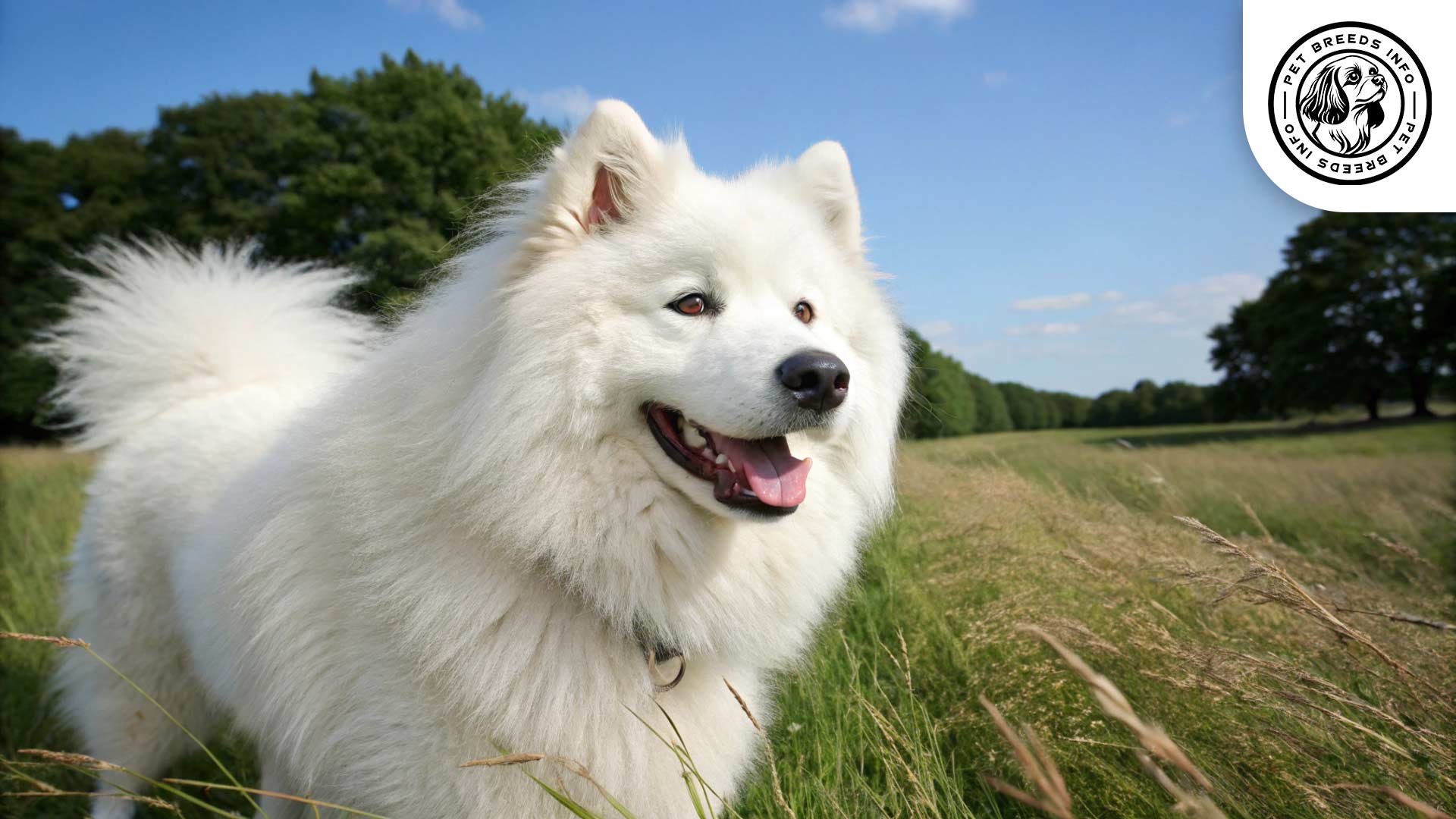
Care and Maintenance Requirements
Samoyeds need daily exercise such as long walks, playtime, and mental stimulation. A home with a yard is ideal, but they can adapt to apartment living if properly exercised.
Their thick coat requires frequent brushing, at least 2-3 times per week, and even more during shedding seasons. They shed heavily twice a year.
They tolerate cold climates well but can struggle in hot weather, so they require shade, water, and air conditioning in warm areas.
Routine grooming includes bathing only when necessary, regular nail trimming, ear cleaning, and brushing their teeth to maintain oral health.
Diet and Nutrition
A high-protein diet with well-balanced fats and carbohydrates is essential. High-quality dry kibble, raw diets, or homemade meals can be suitable.
Avoid feeding them chocolate, grapes, onions, garlic, caffeine, and excessively fatty foods.
Portion sizes should be adjusted based on their activity level but generally consist of two meals per day.
Read More: Saint Bernard Dog
Health and Common Medical Issues
Samoyeds are prone to genetic conditions like hip dysplasia, progressive retinal atrophy (PRA), and Samoyed hereditary glomerulopathy, a kidney disease.
They generally live between 12-14 years with proper care and regular veterinary check-ups.
Routine vaccinations, parasite prevention, and annual health screenings are necessary to maintain overall health.
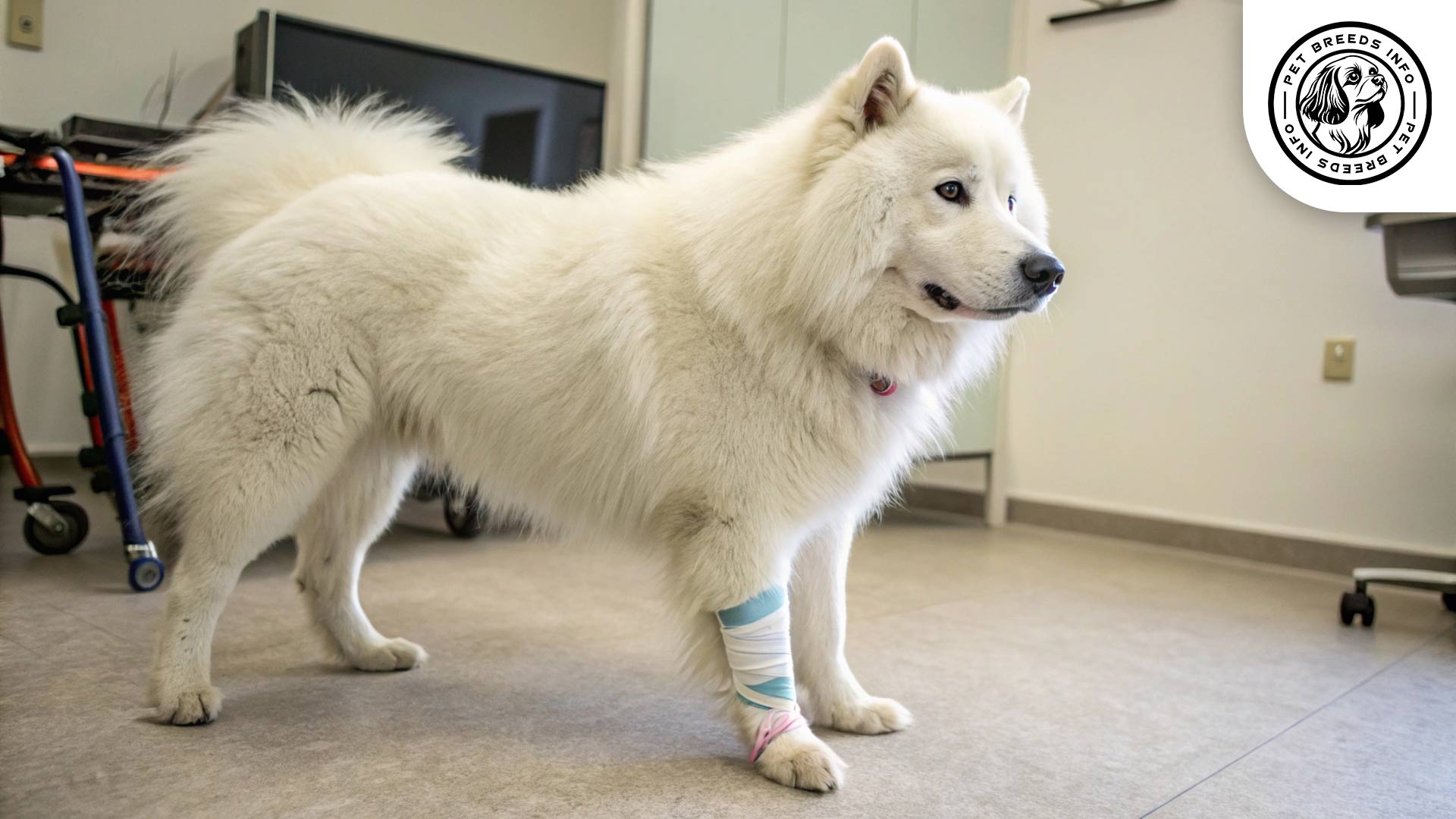
Training and Behavior Management
Samoyeds are intelligent but can be stubborn, so early training and socialization are essential. Positive reinforcement and consistency work best.
Basic obedience training should start early, with emphasis on recall and leash walking due to their tendency to roam.
They respond well to treats and praise but may become bored with repetitive tasks, so training should be engaging and varied.
Interaction with Other Animals and Humans
Samoyeds are excellent with children due to their friendly and playful nature. They are also generally sociable with other dogs and pets when introduced properly.
They thrive in family settings but can also be suitable for active individuals who can provide sufficient attention and exercise.
Although independent at times, they do not do well when left alone for long periods and may develop separation anxiety.
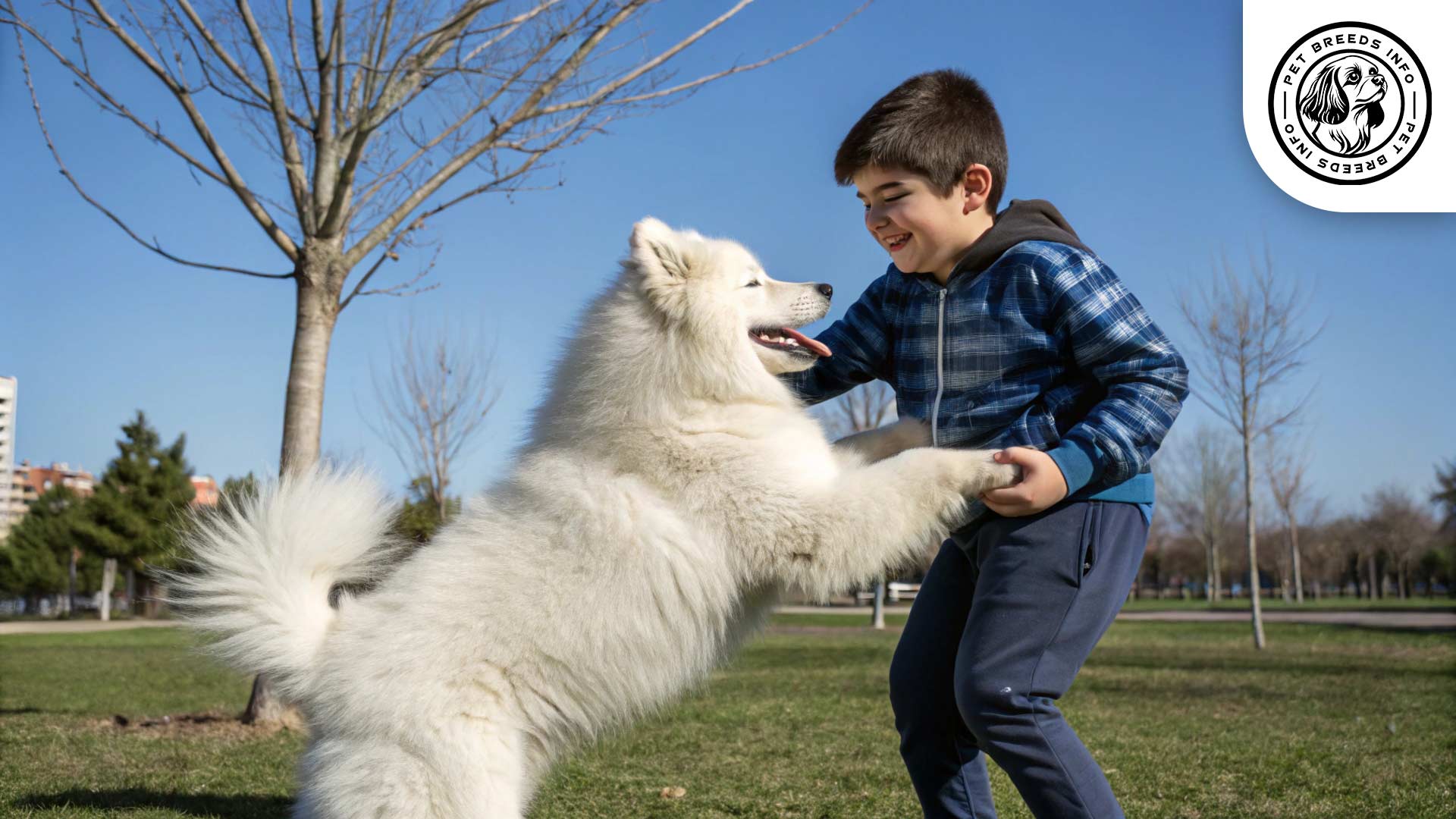
Price and Availability
Purchasing a Samoyed puppy from a reputable breeder can cost between $1,000 to $3,500, depending on pedigree and location.
Adopting from shelters or Samoyed-specific rescues is a great alternative and typically costs less.
Potential buyers should carefully research breeders to ensure ethical breeding practices and proper health screenings.
Read More: Rottweiler Dog
Conclusion and Final Thoughts
Samoyeds are affectionate, intelligent, and energetic dogs that thrive in active, loving homes. They require consistent training, regular exercise, and extensive grooming to stay happy and healthy.
They are ideal for families, individuals with an active lifestyle, and those who can dedicate time and attention to their needs.
Before adopting a Samoyed, potential owners should consider their high grooming demands, need for companionship, and exercise requirements.
FAQ
How much grooming does a Samoyed require?
Samoyeds have a thick, double-layer coat that requires frequent brushing, at least 2-3 times per week, and even more during shedding seasons. They shed heavily twice a year. Routine grooming includes bathing only when necessary, regular nail trimming, ear cleaning, and brushing their teeth to maintain oral health.
Are Samoyeds good with children and other pets?
Yes, Samoyeds are excellent with children due to their friendly and playful nature. They are also generally sociable with other dogs and pets when introduced properly.
What are the common health issues in Samoyeds?
Samoyeds are prone to genetic conditions like hip dysplasia, progressive retinal atrophy (PRA), and Samoyed hereditary glomerulopathy, a kidney disease. Routine vaccinations, parasite prevention, and annual health screenings are necessary to maintain overall health.
What is the average lifespan of a Samoyed?
Samoyeds generally live between 12-14 years with proper care and regular veterinary check-ups.
How much does a Samoyed puppy cost?
Purchasing a Samoyed puppy from a reputable breeder can cost between $1,000 to $3,500, depending on pedigree and location. Adopting from shelters or Samoyed-specific rescues is a great alternative and typically costs less.
